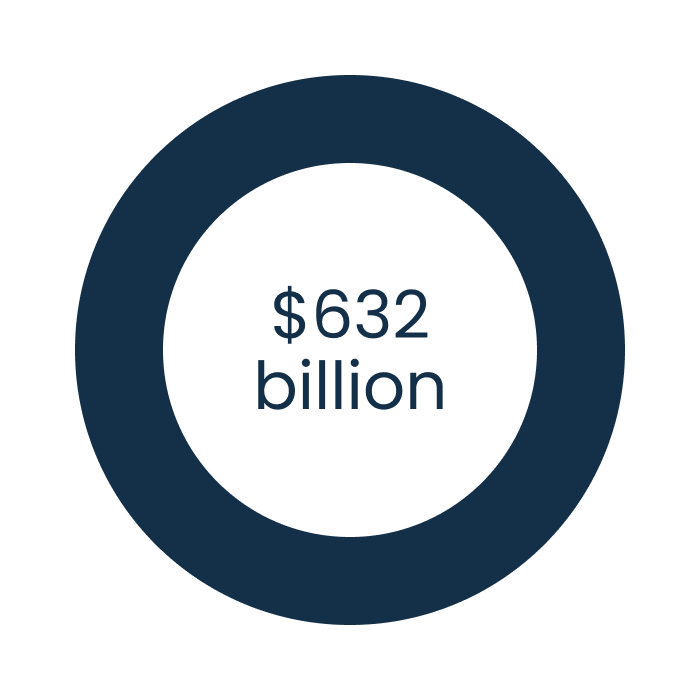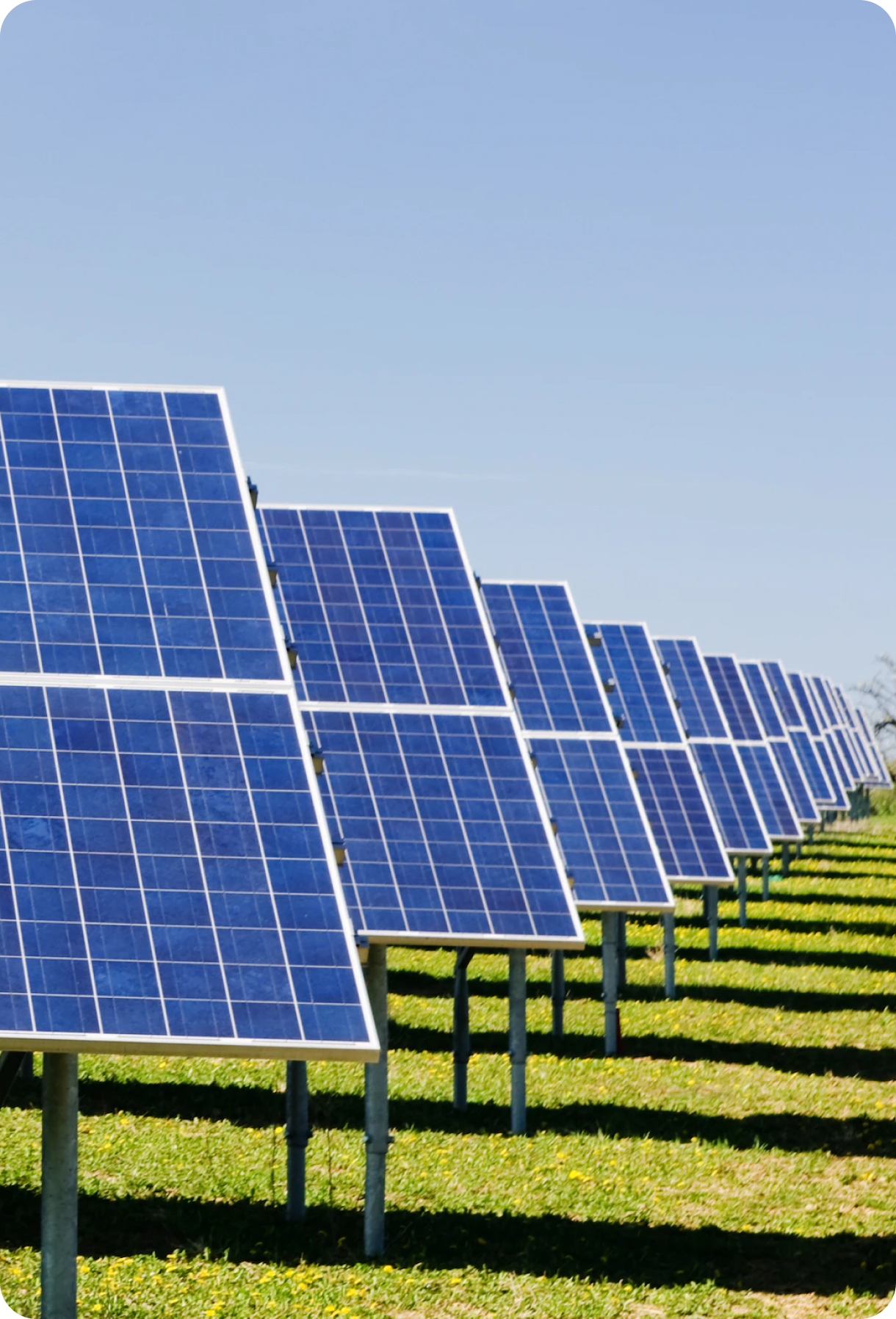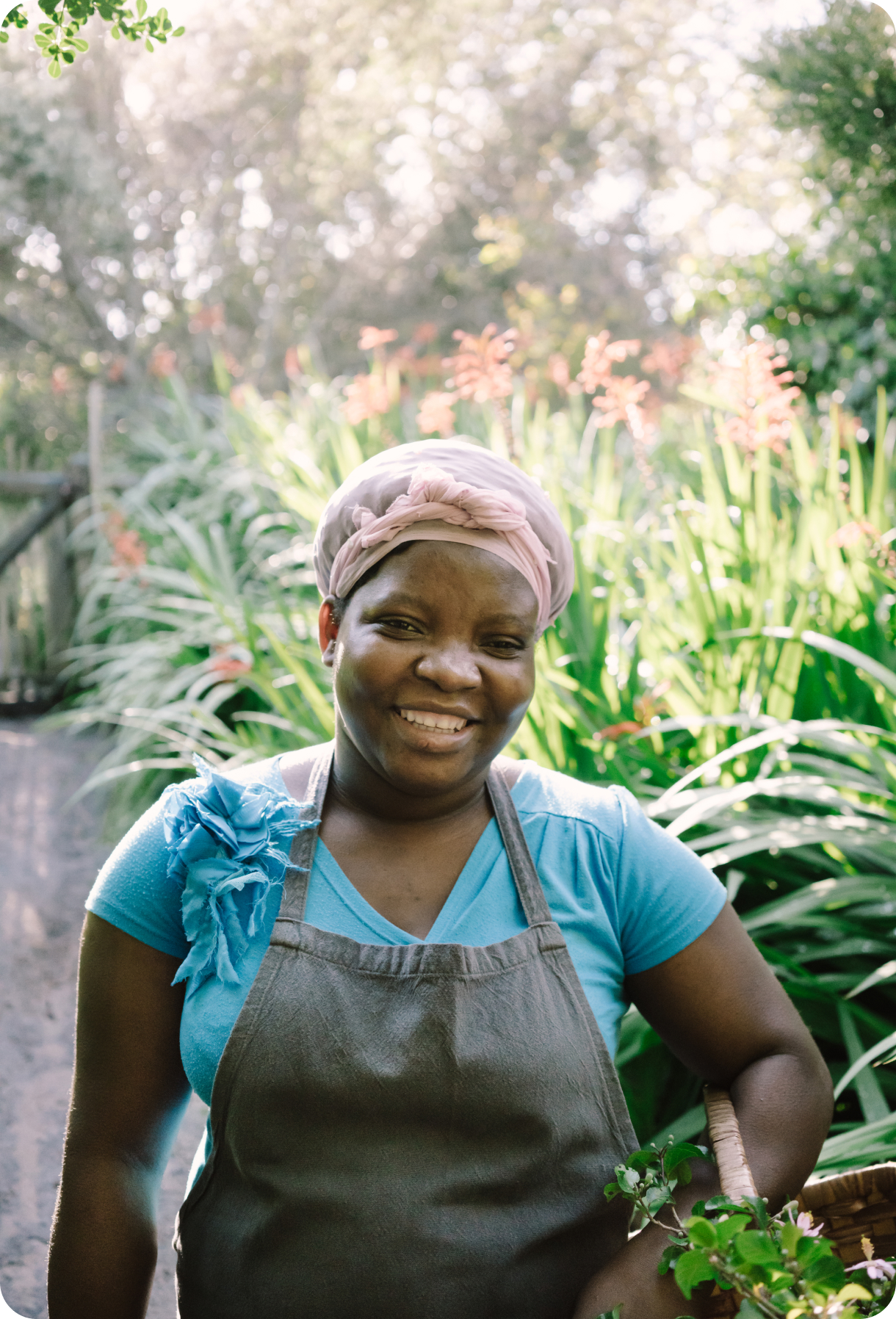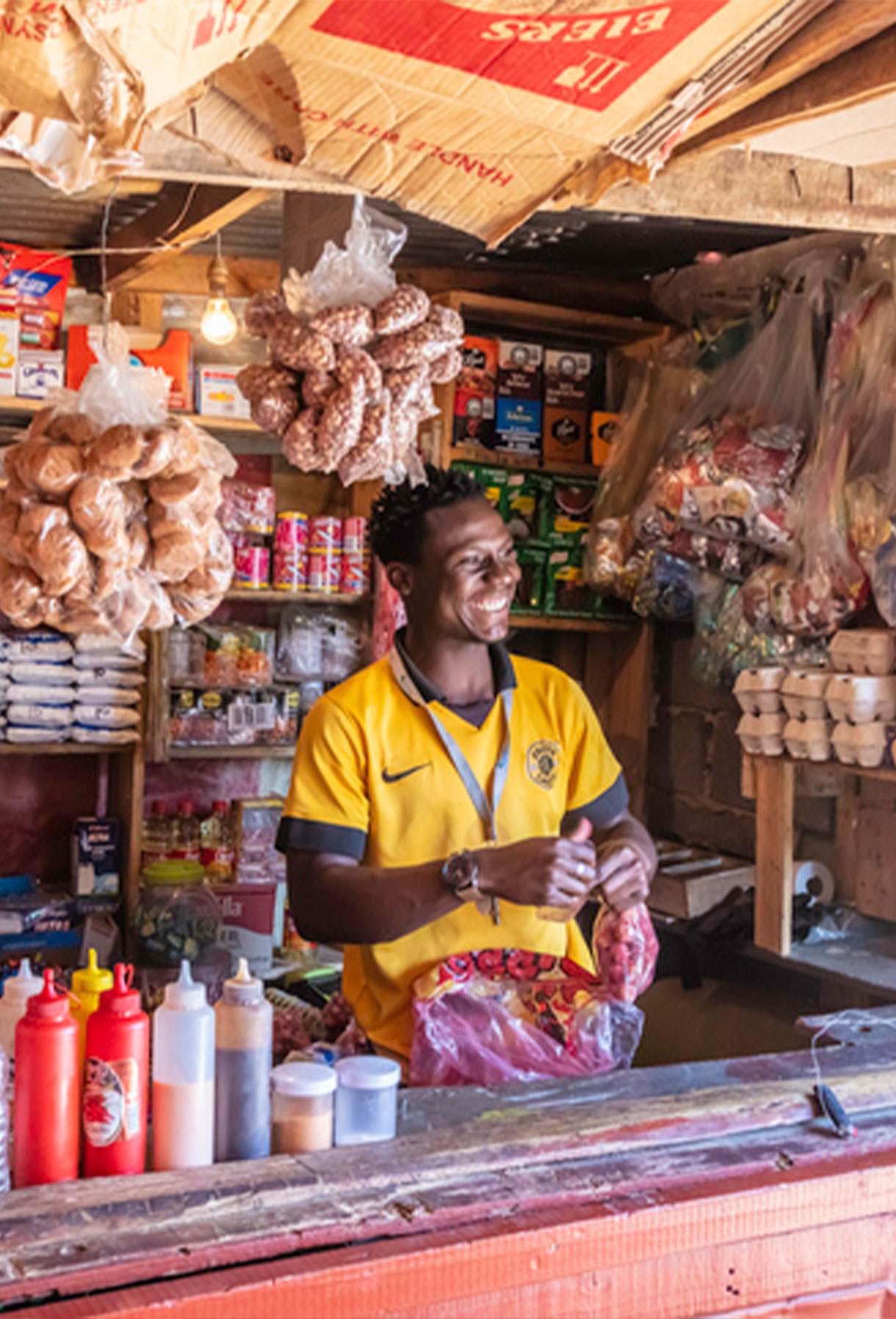

Climate change and poverty operate in a vicious cycle. With flooding and rising temperatures, many low-income households are displaced from their homes due to a lack of resources.
The map shows the percentage of the population that lives at the bottom of the pyramid.
Extreme weather due to climate change causes severe droughts in many African communities and devastating floods in others.
The map compares the projected change in annual precipitation from 2040-2059 vs. 1995-2014.
600 million people across Africa do not have energy access, which accounts for 75% of all people without access globally. Energy access is critical to building resilience to climate change.
The map shows the percentage of households that live off-grid.
Extreme weather due to climate change causes droughts, famines, and heat waves that are intensifying food insecurity across Africa.
The map compares the projected number of hot days (>35°C) from 2040-2059 vs. 1995.













